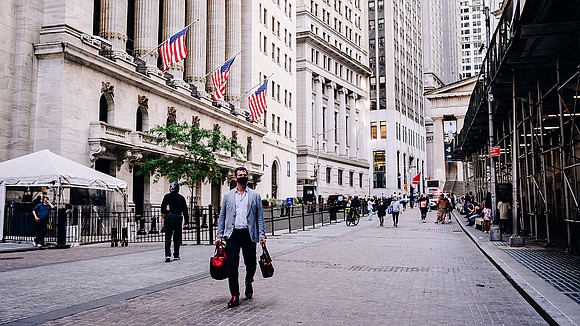Dow tumbles as Delta variant fears grip Wall Street
CNN/Stylemagazine.com Newswire | 7/8/2021, 3:36 p.m.

Originally Published: 08 JUL 21 07:24 ET
Updated: 08 JUL 21 16:09 ET
By David Goldman, CNN Business
(CNN) -- US stocks tumbled Thursday as investors grew fearful that the electric global economic rebound could be slowing.
While stocks finished off their lows, Wall Street was still in the red. The Dow closed down 0.8%, or 260 points, while the S&P 500 dropped 0.9%. The Nasdaq Composite fell 0.7%.
Oil prices, however, reversed course and were up 1.3% around the time of the New York closing bell, while bitcoin dropped nearly 5%. International stock markets also finished sharply lower.
Several factors contributed to Wall Street's sharp reversal from its record highs set Wednesday.
The Delta variant: The spread of the coronavirus' Delta variant continued to threaten the global economic recovery. More than 4 million people around the world have died of Covid-19, according to Johns Hopkins University. But the Delta variant is about twice as infectious as the 2020 version — a kind of "Covid-19 on steroids," Andy Slavitt, a former senior adviser to Joe Biden's Covid Response Team, told CNN on Wednesday.
Covid-19 cases have risen at least 10% in 24 US states over the past week. Japan declared a state of emergency that will last through August 22 — a period that includes all of the Olympic games. China's National Health Commission earlier this week reported the highest daily tally of infections since January 30. And a group of more than 4,000 scientists and health professionals signed a letter this week condemning the British government's plans to drop most pandemic control measures on Monday as the Delta variant spreads.
Wall Street feared that the spread of the Delta variant could undo much of the progress gained over the past year.
"Growing concerns around the Delta variant are adding to anxieties about the global growth outlook," said Keith Lerner, chief market strategist at Truist Advisory Services.
China: China continues to crack down down on tech companies that list their shares in the United States, contributing to uncertainty for investors in those companies. Publicly traded Chinese companies were down another 6% in premarket trading, according to Art Hogan, chief strategist at National Securities Corporation.
China also pledged more economic stimulus Thursday in a surprise move that concerned some investors about the fragility of the economic rebound.
Bond market wonkiness: Investors continued to pour money into the safety of US government bonds, sending yields to a five-month low.
At 1.25%, the 10-year Treasury yield hasn't been this low since February. That's down significantly from its 52-week high of 1.77% set in March, as inflation fears were running rampant. At about the time of the New York close, the 10-year yield was 1.29%.
Inflation concerns have eased since then, but the sharp decline in bond yields is also a signal of fear in the market that could portend slower economic growth, Hogan said.
Perhaps confirming some of those fears, ISM reported weaker-than-expected US manufacturing activity earlier this week. And the job market offered a bit of bad news Thursday morning, as unemployment claims rose a bit last week from the previous week.
Summer sleepiness: Stocks have been boring throughout much of 2021, rising steadily — but not sharply — seemingly every session this year. Perhaps it was time for stocks to slip a bit.
"The mood got giddy," said Peter Boockvar, chief investment officer of Bleakley Advisory Group. "We were set up for a pullback. It was just a question of what the catalyst would be."
With volume low as investors hit the beaches, don't discount some news making an outsized impact on the market, Hogan noted.
-- CNN Business' Matt Egan and Anneken Tappe contributed to this report



